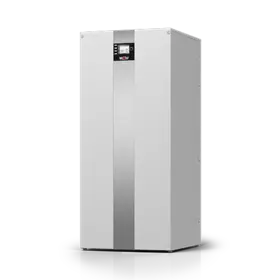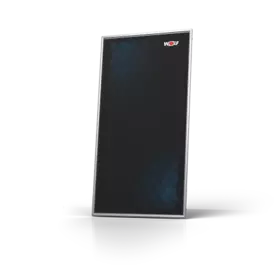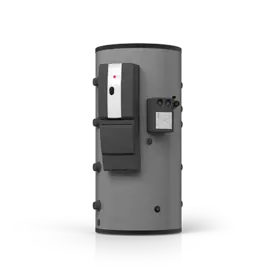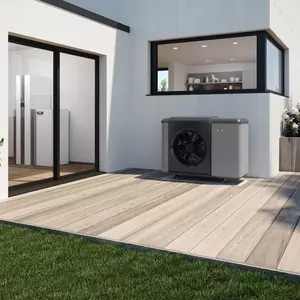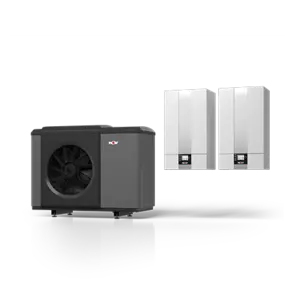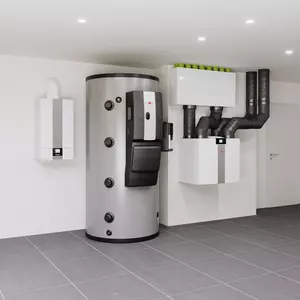
Hybrid solution using gas & solar energy
Single-family house modernisation
- The two live in a large detached house from the 1990s with 200 m2 of living space, low thermal insulation and an aging heating system.Learn more
- Despite the less than optimal thermal insulation, Manfred and Luise would like to install a more environmentally friendly, efficient heating system and, if possible, also incorporate renewable energy sources.Learn more
Heating efficiently and sustainably in older houses
Manfred and Luise want to renovate the oil heating system in their detached house. Read on to find out about the challenges they face and how they overcome them.
The couple are in their late 50s. They live in a relatively large detached house 200 m2 in size. It is an older building in good condition. However, Manfred and Luise want to replace their old oil heating system.
They want to take the opportunity to bring their heating system up to date with modern, energy-saving appliances. They want to install a sustainable solution without having to turn the entire house upside down.
Manfred and Luise are considering how to improve their carbon footprint and if they could heat their home solely using renewable energies. But to do so would involve optimising their thermal insulation (very expensive) and replacing all the radiators as their heating requirements are comparatively high.
The couple does not want to take on such an extensive renovation project at this point. Therefore, they are thinking of heating with gas but do not have a suitable connection.
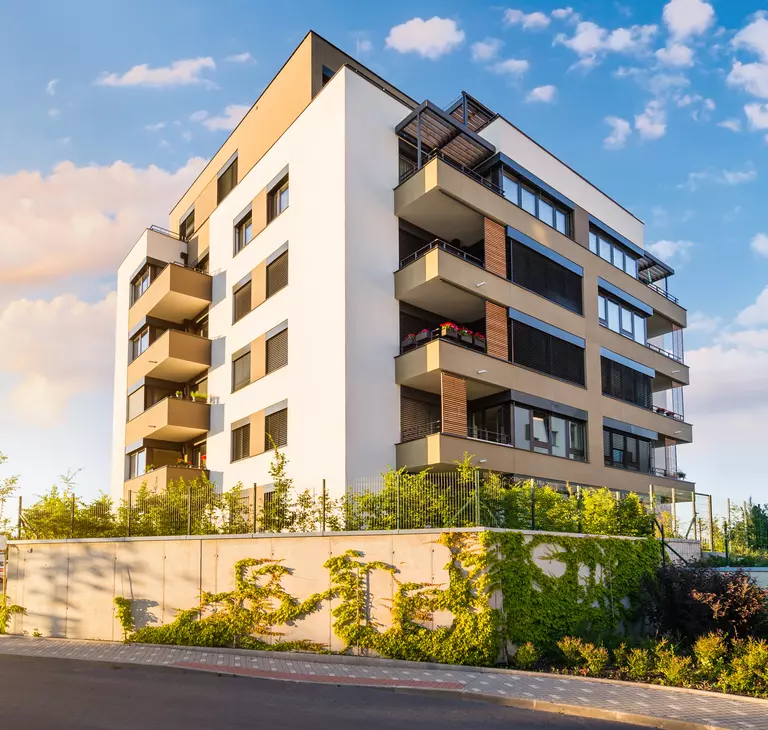
Reasons for choosing a hybrid solution
Their heating contractor informs them that they can run their heating system from an LPG tank without needing to be connected to the gas mains and that renewable energies are not impossible. For a variety of reasons, they decide to replace their old oil boiler with a modern combination of a gas condensing boiler and solar thermal system.
Gas condensing boilers are currently the most energy-efficient way of heating with fossil fuels. Old oil heating boilers are inefficient and obsolete due to their high levels of pollutant emissions. This is also reflected by the current statutory requirement to replace this kind of heating system and the future ban on their installation.
The ecological aspect can be addressed by combining the boiler with a solar heating system. These modules use solar heat and do not emit any CO2 or other pollutants.
Just 4 m2 of collectors would be enough to cover Manfred and Luise’s hot water requirements. However, as the system is also intended to support the heating system, a larger area would be required. The higher the proportion of solar energy used for household heat production, the less often the boiler has to step in. A further advantage: some modern gas boilers can be operated using biogas, which is more environmentally friendly.

Manfred and Luise will have to install an LPG tank in their garden but can also scrap the oil tank previously required in their home, which means they gain additional space. In the garden, they can choose either an above-ground or underground tank. They decide to go with the underground variant for aesthetic reasons.
Sounds complicated? Not for us!
It can be complex and time-consuming to find the right solution for your home. We can help you to understand everything that is really relevant to your project in only a few minutes.
Why this combination is ideal
Manfred and Luise have shown that it is certainly possible to modernise their heating system and make it energy efficient even though the structural conditions are unfavourable. They managed this without complex measures, such as replacing the entire heating system and thermal insulation of the building.
Even just using a modern gas condensing boiler and combining this with solar heat significantly improves their energy consumption and reduces the cost of heating. Moreover, if they are connected to the gas mains in the future, they will not need to invest in another suitable boiler.
